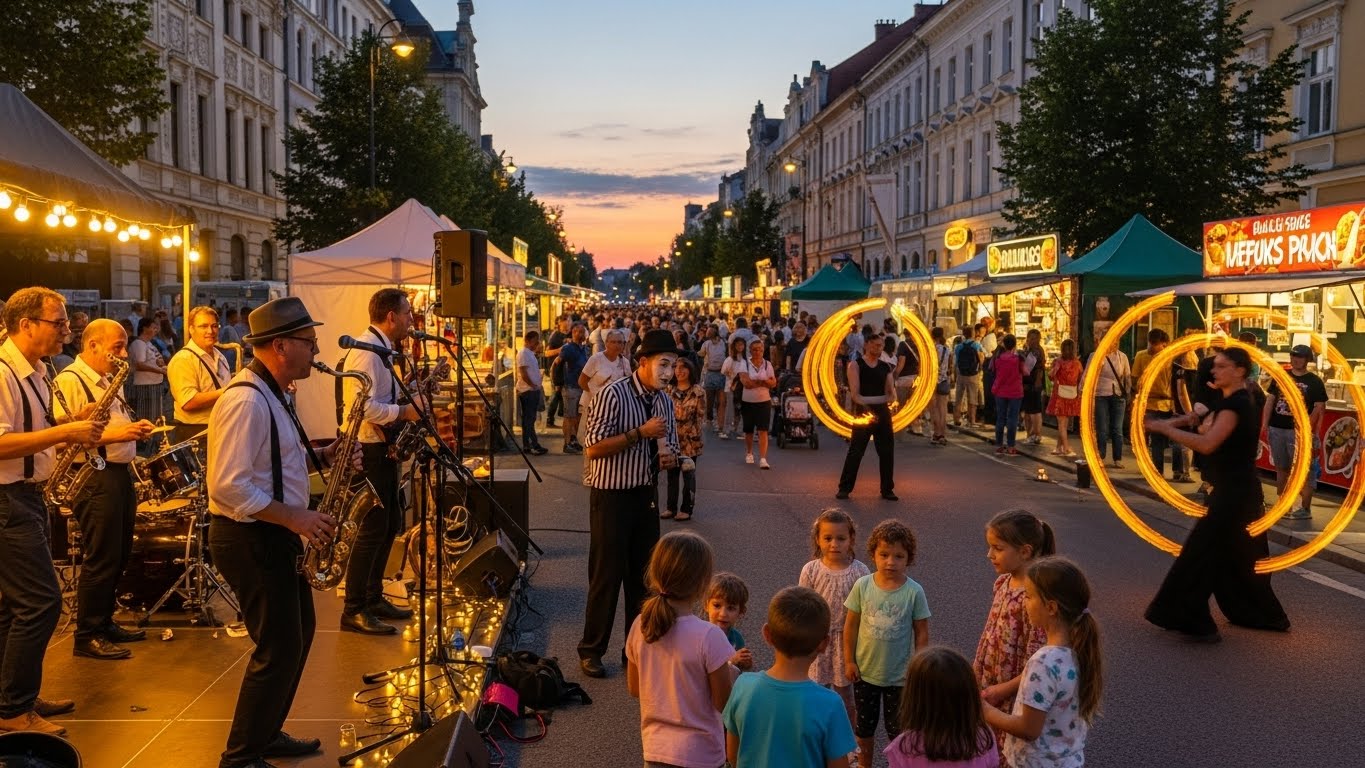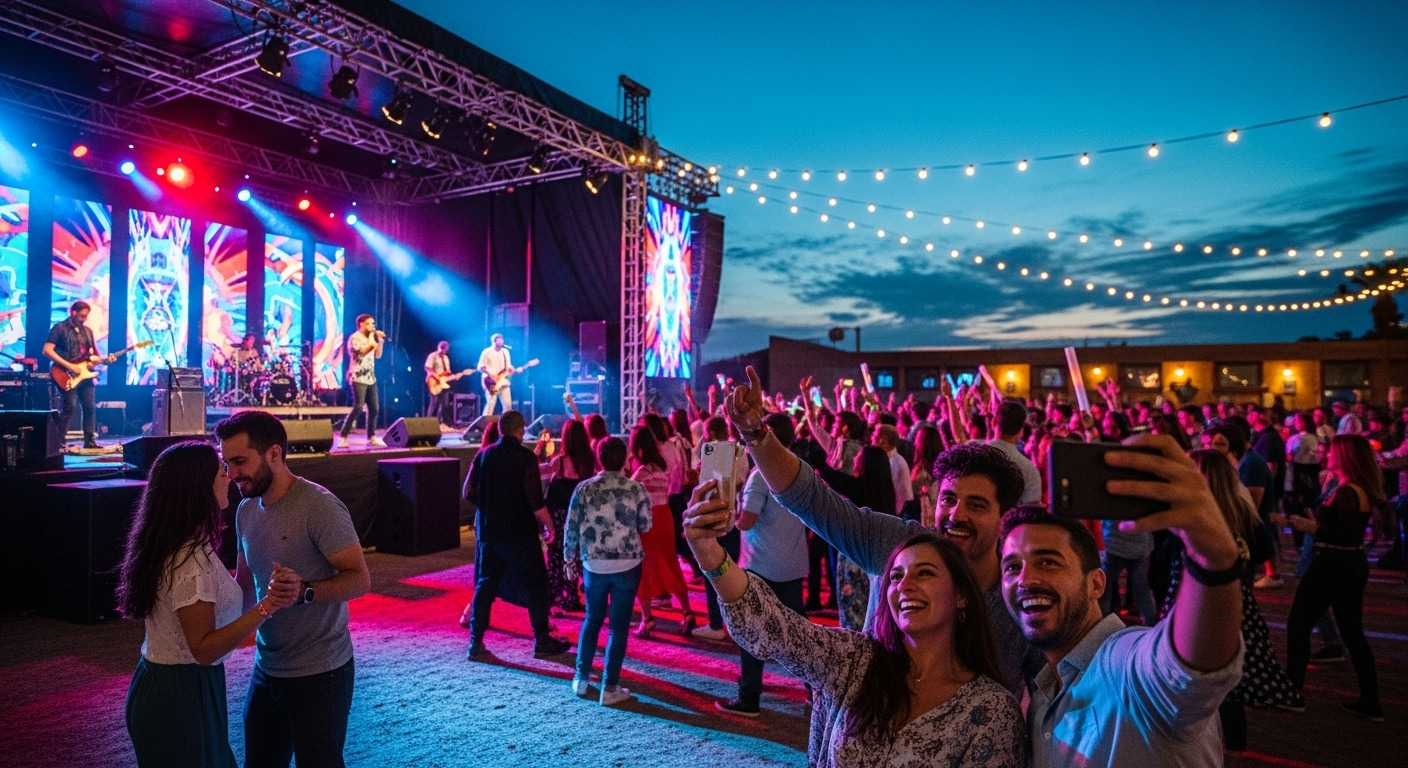Entertainment has been an integral part of human life for centuries, offering an escape from reality, a source of inspiration, and a platform for cultural expression. From the earliest cave paintings that depicted stories of daily life to the sprawling digital universe of today, entertainment has continually evolved, reflecting societal changes, technological advancements, and the creativity of human imagination. In this blog, we explore the fascinating landscape of entertainment, covering its history, current trends, and the future possibilities that continue to captivate audiences worldwide.
The Historical Roots of Entertainment
The concept of entertainment is not new. In fact, humans have been entertaining themselves for thousands of years. Ancient civilizations developed various forms of amusement, often deeply intertwined with religious and social rituals.
Entertainment in Ancient Civilizations
In Ancient Egypt, entertainment was a blend of storytelling, music, and dance. Pharaohs often hosted grand performances during festivals, including intricate plays that showcased mythological tales. Similarly, in Ancient Greece, entertainment took the form of theater and athletic competitions. Greek tragedies and comedies performed in amphitheaters are still studied today for their artistic and cultural significance.
Roman civilization expanded upon Greek entertainment with spectacles such as gladiatorial games, chariot races, and public festivals. These events were not only a form of amusement but also a tool for social cohesion and political influence.
Medieval Entertainment
During the Middle Ages, entertainment became more localized and community-based. Jousting tournaments, fairs, and traveling performers entertained the masses, while literature and storytelling preserved folklore and historical events. Minstrels and bards traveled from town to town, sharing stories through song and poetry, laying the foundation for oral storytelling traditions that still influence modern entertainment.
The Golden Age of Cinema
The invention of the motion picture in the late 19th century revolutionized entertainment. Cinema became a global phenomenon, transforming how stories were told and consumed.
Silent Films and Early Talkies
The era of silent films introduced audiences to a new visual storytelling experience. Actors relied on exaggerated expressions and body language, while live orchestras often accompanied screenings. With the advent of sound in the 1920s, “talkies” emerged, adding dialogue and music that enhanced the emotional impact of films. Classic films like Metropolis and The Jazz Singer remain iconic examples of early cinematic innovation.
Hollywood and Global Film Industries
Hollywood quickly became the epicenter of the film industry, producing movies that set global trends. The studio system of the 1930s and 1940s created legendary stars, from Humphrey Bogart to Audrey Hepburn, whose performances still resonate today. Meanwhile, other countries developed their own film industries. Bollywood in India emerged as a major force, combining music, dance, and drama in uniquely vibrant ways. French cinema contributed revolutionary techniques, such as the New Wave movement, which influenced filmmakers worldwide.
Music: The Universal Language
Music has always been a cornerstone of entertainment. Across cultures and centuries, music has served as a form of expression, storytelling, and communal experience.
Classical Roots and Modern Evolution
Classical music, from composers like Beethoven and Mozart to Debussy and Tchaikovsky, shaped the foundations of musical theory and performance. Orchestras and operas became major forms of entertainment, blending auditory beauty with theatrical spectacle.
With time, modern music evolved into genres that reflected social change and cultural diversity. Jazz, rock, pop, hip-hop, and electronic music emerged, each with its distinct style and audience. Today, music streaming platforms allow instant access to millions of songs, bringing global audiences closer to artists and genres they might never have encountered otherwise.
Live Performances and Festivals
Live music continues to captivate audiences worldwide. From intimate jazz clubs to massive music festivals, live performances offer an irreplaceable connection between artists and fans. Festivals like Glastonbury, Coachella, and Tomorrowland have become cultural landmarks, blending music, fashion, and lifestyle into immersive experiences.
Television and Streaming: Redefining Entertainment at Home
Television revolutionized home entertainment, offering a continuous stream of content to audiences worldwide. From black-and-white sets to smart TVs, the evolution of television reflects changes in technology and consumer behavior.
The Golden Age of Television
The 1950s to 1970s saw television become a central part of family life. Iconic shows like I Love Lucy and The Twilight Zone entertained and inspired audiences while shaping social conversations. Television became a reflection of society, tackling themes from everyday life to futuristic imagination.
The Streaming Revolution
In recent years, streaming platforms have reshaped the entertainment industry. Services like Netflix, Disney+, and Amazon Prime Video have disrupted traditional broadcasting, allowing viewers to watch content anytime, anywhere. This shift has also democratized content creation, giving independent filmmakers and niche creators a platform to reach global audiences.
Gaming: Interactive Entertainment
Gaming has transformed entertainment into an interactive experience, merging technology, storytelling, and competition. Video games have become a cultural phenomenon, appealing to diverse age groups and interests.
The Evolution of Video Games
From early arcade games like Pong to modern immersive experiences like The Last of Us and Elden Ring, video games have continually evolved. Advances in graphics, AI, and storytelling have elevated gaming to an art form, while esports have turned competitive gaming into a spectator sport.
Virtual Reality and Augmented Reality
Virtual reality (VR) and augmented reality (AR) are pushing entertainment into new dimensions. VR allows players to step into fully realized digital worlds, while AR blends the virtual and physical environments, creating immersive experiences for gaming, education, and live events.
Social Media and Digital Content Creation
The rise of social media has transformed entertainment into a participatory experience. Platforms like YouTube, TikTok, and Instagram have allowed individuals to become creators, sharing content with millions of followers worldwide.
Influencers and Viral Culture
Influencers have become a new kind of celebrity, shaping trends in fashion, lifestyle, and entertainment. Viral challenges, memes, and short-form videos have created a culture of immediacy and creativity, allowing entertainment to adapt rapidly to audience preferences.
User-Generated Content
User-generated content has democratized entertainment, giving everyone a voice and platform. From amateur musicians to independent filmmakers, anyone with creativity and determination can entertain a global audience. This shift has blurred the lines between creators and consumers, fostering a more participatory entertainment landscape.
The Psychology of Entertainment
Entertainment is not merely a pastime; it has profound psychological and social effects. It provides relaxation, emotional catharsis, and cognitive stimulation.
Emotional and Social Benefits
Watching a movie, listening to music, or playing a game can release dopamine, reducing stress and improving mood. Entertainment also facilitates social bonding, whether through shared experiences at concerts, gaming sessions, or discussions about popular shows and films.
Cultural Reflection and Inspiration
Entertainment reflects cultural values, societal norms, and collective aspirations. It can inspire creativity, empathy, and critical thinking, encouraging audiences to see the world from different perspectives.
Emerging Trends in Entertainment
The entertainment industry is constantly evolving, driven by technological innovations and shifting consumer preferences.
Artificial Intelligence and Storytelling
AI is beginning to shape the future of entertainment. From generating music and visual art to scripting films and interactive experiences, AI can enhance creativity and streamline production processes.
Immersive Experiences and Live Events
Hybrid experiences that blend physical and digital entertainment are gaining popularity. Immersive theater, interactive exhibitions, and VR concerts offer audiences new ways to engage with content, blurring the line between spectator and participant.
Sustainability in Entertainment
As global awareness of environmental issues grows, entertainment industries are adopting sustainable practices. Film productions, music festivals, and gaming events are increasingly focusing on eco-friendly initiatives, reflecting a broader societal commitment to sustainability.
Conclusion: The Endless Possibilities of Entertainment
Entertainment is a dynamic, ever-changing field that continues to captivate, inspire, and connect people around the world. From ancient storytelling and classical music to cutting-edge virtual reality experiences, the essence of entertainment remains the same: it brings joy, provokes thought, and enriches the human experience.
As technology advances and cultural landscapes shift, the future of entertainment promises even more innovation, interactivity, and global connectivity. One thing is certain—no matter the medium or platform, the human desire to be entertained, inspired, and moved will continue to drive the evolution of this timeless art form.



